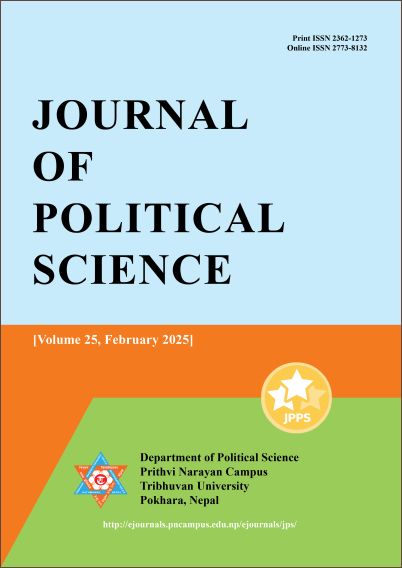The Populist Surge: Analyzing its Global Dimensions and Implications for Democratic Governance
DOI:
https://doi.org/10.3126/jps.v25i1.75781Keywords:
Authoritarianism, developing democracy, hate politics, political ideology, populismAbstract
Populism is an ideology that reshapes society into a binary of "pure people" and "corrupt elite," reshaping the relationship between the masses and political elites. This has led to the rise of populist parties, which have challenged democracy. This paper aims to understand the operational dynamics of populism in international politics and explore its deep impacts on democracies globally. The study uses populism as an independent variable and sub-variables like division of people, use of social media, and threat to democracy as dependent variables. Data was collected from a Google survey among 123 respondents from various ages, professions, regions, and genders. The results reveal a disturbing global shift towards populist politics, its erosive effects on democratic norms, the rise of authoritarian impulses, and its increasingly prevalent threat to democracy. The rise of populism can be prevented by regulating media, implementing effective redistribution policies, and ensuring deliberative democracy. Mainstream political actors should also reduce political polarization and shape people's perceptions with democratic norms to combat populism.
Downloads
Downloads
Published
How to Cite
Issue
Section
License

This work is licensed under a Creative Commons Attribution-ShareAlike 4.0 International License.




